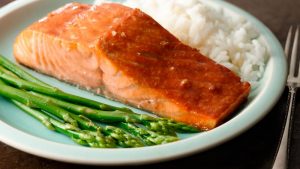Many parents and loved ones often share concerns about the use of pharmaceuticals and the treatment of Attention Deficit Disorder. The listed side effects of stimulant medications (the most commonly prescribed) can be rather daunting.
Also, there are many children and adolescents who, for various reasons, cannot or will not use pharmaceutical interventions, and will instead look to other interventions, such as diet and exercise.
For those choosing this path; there are things to consider before taking on a change in diet or lifestyle for the purpose of treating ADHD.
Things to Consider:
The link between diet, exercise, and ADHD is not studied nearly as much as pharmaceutical interventions, and the results are rarely as definitive as they are for other interventions ¹. Most of the results from the studies presented are modest at best, and may require a larger commitment of time and resources.
It is VERY important, that you speak with your doctor beforehand about any changes that might be made in the diet of a child or adolescent with ADHD. It is important to remember that diet and exercise is good for all children and adolescents, regardless of whether or not they have been diagnosed with ADHD, and that the inclusion of this intervention would be best served an addition to, not a replacement for a more evidence based treatment plan.
What Does the Research Say?
The research that does exist for diet and exercise is modest, but there is cause believe that a change in lifestyle could have an impact on the symptoms of ADHD.
Exercise:
Movement and physical exercise has been linked to a reduction in symptoms of ADHD ². 30 minutes to an hour of physical exertion can help reduce symptoms of inattention and excitability that is often a hallmark ADHD.
One study showed that taking into account WHERE the exercise takes place makes a difference as well. Spending time outdoors and in nature, that is away from urban areas, showed a clinically significant reduction in the symptoms of ADHD according to one study³. It was found that the same exercises done outdoors as opposed to indoors, or in an urban setting were much more significant in reducing the symptoms.
https://www.ncbi.nlm.nih.gov/pmc/articles/PMC1448497/
Diet:
When it comes to diet, there is little evidence that could be called ‘definitive’ in terms of their effectiveness. Although some research has shown that the addition of Omega 3’s to the diet of a child or adolescent could have an impact on symptoms of inattention¹. Reducing the amount of sugar and carbohydrates that an adolescent consumes within the day may also have an effect.
Conclusion:
As an intervention, diet and exercise would be best utilized as being used in addition to other interventions. The current literature shows that there may be at least some modest gains in regards to both diet and exercise, but it is not conclusive.
And as always, speak with a physician before making any changes to a child or adolescents lifestyle.
- Millichap, J. G., & Yee, M. M. (2012). The Diet Factor in Attention-Deficit/Hyperactivity Disorder. Pediatrics, 129(2), 330-337. doi:10.1542/peds.2011-219
- 2. Berwid, O. G., & Halperin, J. M. (2012). Emerging Support for a Role of Exercise in Attention-Deficit/Hyperactivity Disorder Intervention Planning. Current Psychiatry Reports, 14(5), 543-551. doi:10.1007/s11920-012-0297-4
-
.Kuo, F. E., & Taylor, A. F. (2004). A Potential Natural Treatment for Attention-Deficit/Hyperactivity Disorder: Evidence From a National Study. Retrieved December 12, 2016, from https://www.ncbi.nlm.nih.gov/pmc/articles/PMC1448497/

